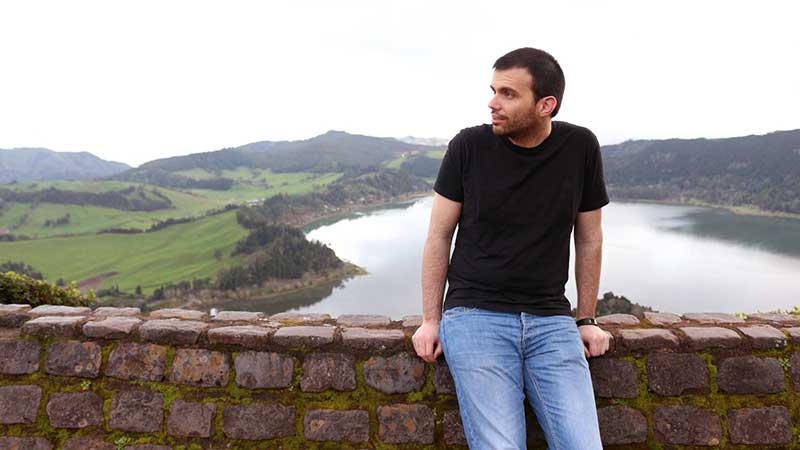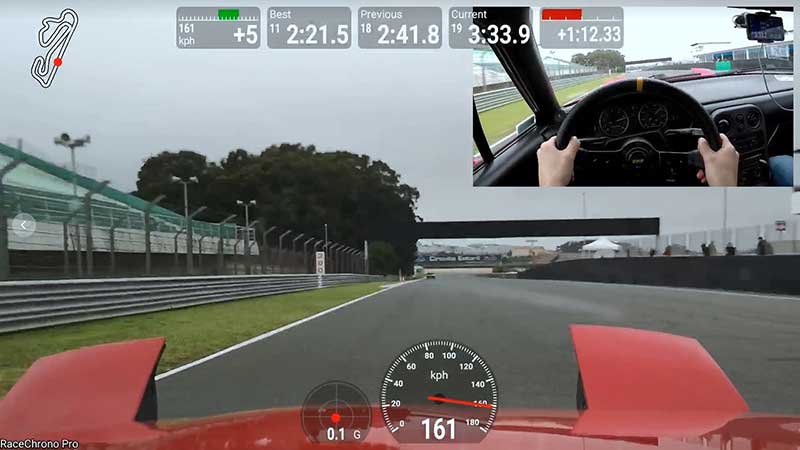Vitor is a constant learner. He is passionate about learning and changing, and believes in taking risks, even if that means failing once in a while. He believes that failing is just another path to learning, and the faster we fail, the faster we get to the answers we’re looking for.
What’s your story so far?
I would say that my story is one made of chance and change.
We all have touch points in our lives that somehow define us: what we invest in during our student years, the companies we work for, relocating to different countries, buying a home and getting a life-long loan, etc. There are a lot of these decisions that I’ve taken quite lightly, and these experiences have given me a certain view on chance and change.
So for me, while filing my papers to apply to a university, I was absolutely clueless what I wanted to study or do in life, and I ended up in engineering by chance — and loved it. And that was a step on a path that I am now on.

And then I got my first job again through chance. I made someone laugh during the interview by answering: “I have no clue how to do it, but I believe I’m very good at googling that…”
As for change, the first time I relocated, I moved to Warsaw for a year of my life, with a one-week notice, which was just about enough time to buy winter clothes. Sounds scary to leave everything behind, right? But it was such a defining experience for me, and I absolutely loved it.
So, what’s the message I’m trying to get to? Change means going into the unknown and breaking status quo. It’s very easy to fall into the trap of fantasizing about everything that can go wrong and the risks of that change. But my story so far has shown me that if we take this with a positive attitude, there is a big chance that the change is more likely to bring happiness than troubles. Taking that chance, having that leap of faith, and embracing the unknown is most likely a change for the best.
Could you name a passion of yours that’s impacted your life?
Throughout my life I’ve dedicated a reasonable amount of time to hobbies and learning skills. These range from playing classic guitar, photography, videography, 3D modelling, restoring a car, FPV drones, motorcycles, among others.
Now, with so many good examples on that list, there’s one hobby that had a huge impact on the way I manage emotions, and that was gaming (as weird as it may seem). When I was younger, I was a bit (lot) hot-blooded. I would get very nervous, very fast, and react blindly (the kitchen door had a hole for years, from a skateboard aimed at my brother’s head).

So during my youth and for several years, I played a first-person shooter at a reasonable competitive level. Here’s the thing: when emotions take over during times when intense focus is needed, it’s a fast way down as we will start making mistake after mistake. Controlling your emotions when things are going wrong is absolutely necessary to be consistent and performant.
I believe this one hobby had a huge impact on the way I process risk and manage emotions when in stressful situations, and this has been useful in life and in work as it gives me the mental space to process the information more rapidly, with less emotional bias, and make a faster and more balanced decision.
Why FintechOS?
Definitely the people. We spend a big part of our time awake working, so ideally, we want to be happy while doing the work, right?
We might say we joined a company because of the vision the company has, or because of a mission to help save the world, or simply because we really wanted to work with a certain technology and the company is using it.
Nonetheless, there’s a bigger picture behind it: the vision of the company is the vision the people have for the company, the mission is how the people of the company feel they can make a difference, and even the technology a company is using would have been a technical decision taken by people!
So indeed, when asked why FintechOS, for me it’s because of these people making all these decisions, driving a better company, and having a vision that gets us up in the morning with the will to make a change — not just “work”, but instead being happy with what we’re doing.
What’s your go-to relaxation trick?
Driving. Getting into the car, putting some music and going for a ride does the trick.
What’s in the future for you?
Learn and change! This has been one of the constants in my life, learn something, train until I become good at it, and move to something else.
That’s probably one of the reasons I accumulate so many hobbies and skills, some of them completely useless such as pen spinning (skill acquired by the 2nd year of university). Still, it’s a mindset that can be applied to anything. If there’s an inquisitive mind, then it can be applied to think about a problem, learning how to solve it and applying the solution.
What’s your favorite thing to do?
Learning a new skill and mastering it. Usually, and especially at the initial phase of getting into something new, it is super exciting and interesting, everything is a challenge and I really need to put myself into it. So, today the answer would be working with free-style FPV drones, as that’s the most recent hobby.
How would you describe yourself?
Optimistic. I try to see the positive side on everything we do.
What are your thoughts on taking risks?
Take risks and embrace change. There is no better reward than taking a risk and getting it done. Also, if we dissect what we consider a “risk”, risk is our perception of the worst outcome of a hypothesis or action, but for each, there’s also the diametrical opposite, the reward. So, taking risks is also aiming for the reward.
Even if we consider the worst-case scenario, we fail epically (and ideally super-fast), so what? That’s not bad, it has a positive outcome in that we can validate an action or hypothesis that didn’t work! Failing is learning, and the faster we do it, the faster we get to the right answer. Don’t be afraid to fail, if you can clearly understand why something failed and how you can do it better next time, there’s a lot of value!
The ones who don’t try and fail until success are typically the ones keeping the status quo, and we all know how that ends up right? (Wink to Kodak). Remember that when we see success, we see something that typically was built on a huge pile of small and big failed iterations. Even rocket science fails, epically, from time to time. Failure is so common, let’s just accept it and move on to the next iteration.




